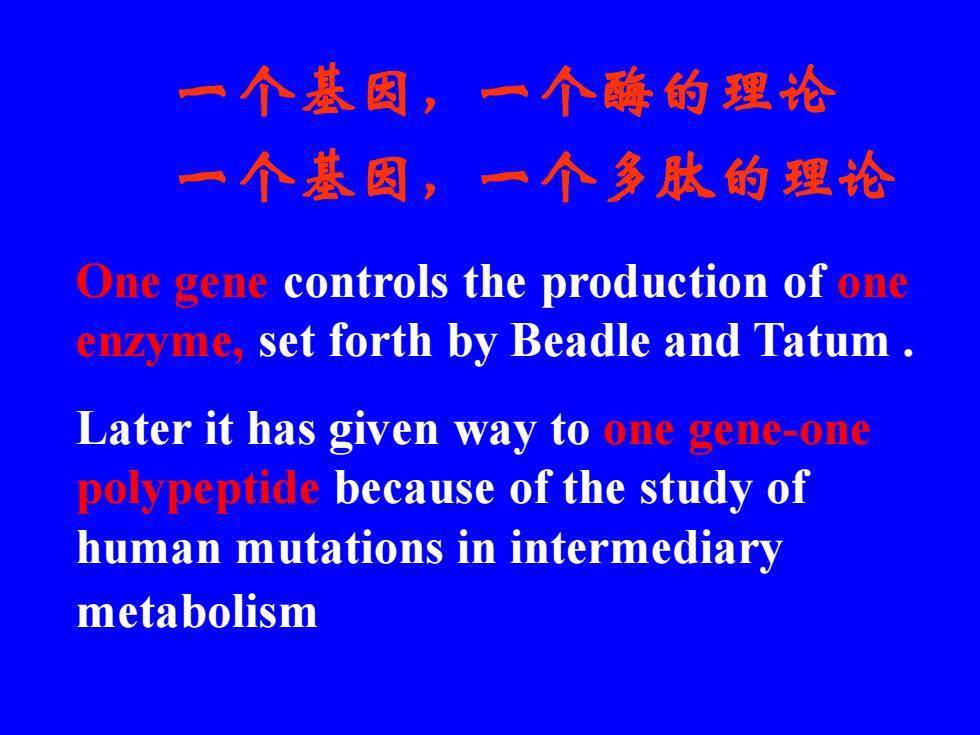
一个基因,一个酶的理论 一个基因,一个多肽的理论 One gene controls the production of one enzyme,set forth by Beadle and Tatum Later it has given way to one gene-one polypeptide because of the study of human mutations in intermediary metabolism
One gene controls the production of one enzyme, set forth by Beadle and Tatum . Later it has given way to one gene-one polypeptide because of the study of human mutations in intermediary metabolism 一个基因,一个酶的理论 一个基因,一个多肽的理论

Basic Principles Proteins function at every step of metabolic processes Genes control protein synthesis Genetic control of metabolic processes introduces human variation Sometimes that variation results in susceptibility to disease Sometimes that variation is disease
Basic Principles • Proteins function at every step of metabolic processes • Genes control protein synthesis • Genetic control of metabolic processes introduces human variation • Sometimes that variation results in susceptibility to disease • Sometimes that variation is disease

突变的基因通过改变多肽链的质和量,引起 疾病,根据缺陷蛋白对机体所产生的影响不同 把这类疾病分为 分子病 遗传性酶病
突变的基因通过改变多肽链的质和量,引起 疾病,根据缺陷蛋白对机体所产生的影响不同, 把这类疾病分为 分子病 遗传性酶病

第一节分子病 molecular disease 由于基因突变导致蛋白质分子质和量 的异常,直接引起机体功能障碍的一类 疾病
第一节 分子病 molecular disease 由于基因突变导致蛋白质分子质和量 的异常,直接引起机体功能障碍的一类 疾病

分子病的分类 运输性蛋白病,如血红蛋白病 免疫蛋白缺陷病,如无丙球蛋白血症 ·凝血及抗凝血因子缺乏症,如血友病 膜蛋白病,如球形细胞增多症 受体蛋白病,如家族性高胆固醇血症 胶原蛋白病,如成骨不全
分子病的分类 • 运输性蛋白病,如血红蛋白病 • 免疫蛋白缺陷病,如无丙球蛋白血症 • 凝血及抗凝血因子缺乏症,如血友病 • 膜蛋白病,如球形细胞增多症 • 受体蛋白病,如家族性高胆固醇血症 • 胶原蛋白病,如成骨不全